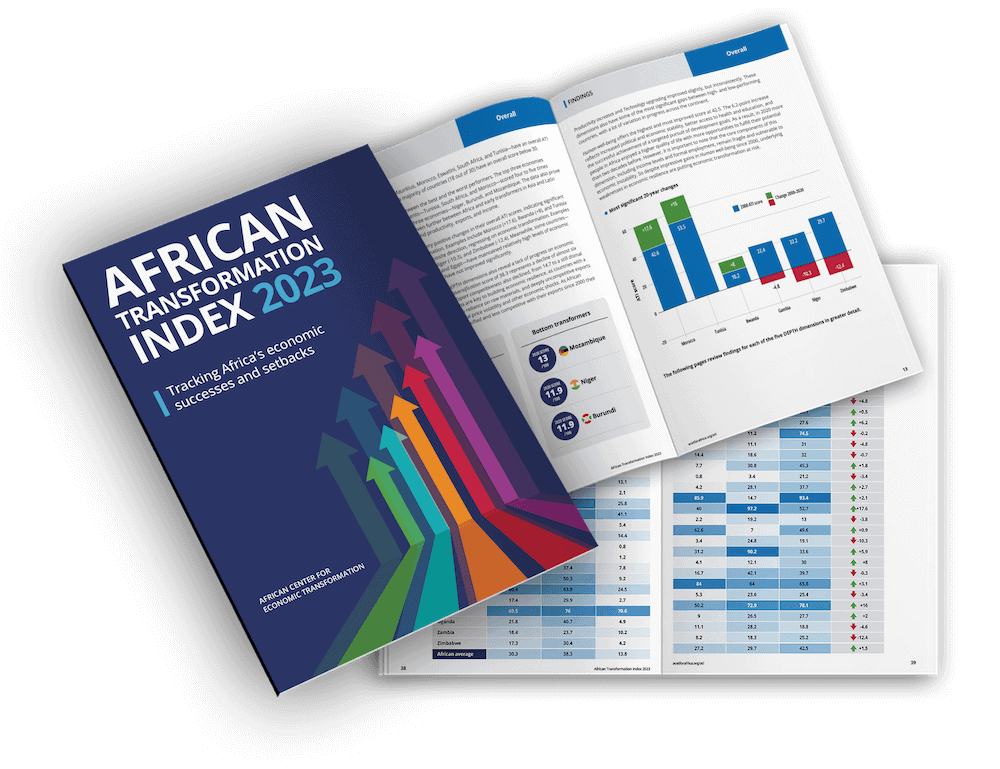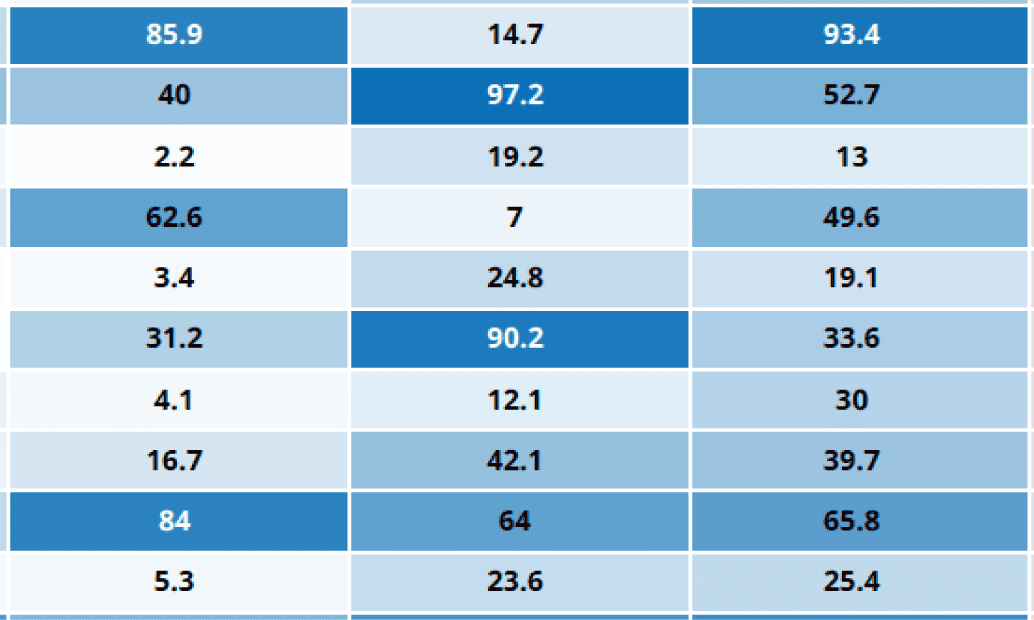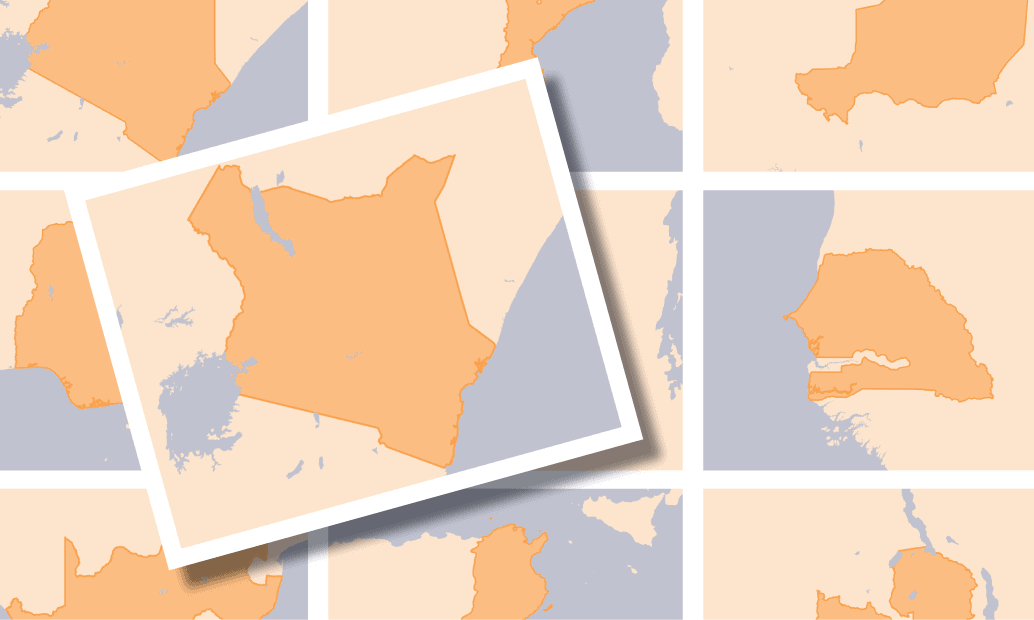ATI
COUNTRY PROFILE
Tunisia
Tunisia is a lower-middle-income economy in North Africa and the top-performing country in the ATI, with an overall score of 69.5, more than double the overall African average of 30.3. Tunisia has outperformed the African average in all DEPTH dimensions, with the top Diversification score and second-highest Human well-being score. The country made positive progress in every dimension between 2000 and 2020.

Tunis
12.4 million
0.8 %
2.5 %
US $3,777
Tunisia’s Performance on the African Transformation Index
The overall African Transformation Index score measures the five dimensions of DEPTH.

Overall score
69.5 /100
Score change
since 2000
At a glance
- Tunisia is a high economic transformer with an overall ATI score of 69.5, more than double the overall African average of 30.3.
- Tunisia has outperformed the African average in all DEPTH dimensions, with the top Diversification score and second-highest Human well-being score.
- The country made positive progress in every dimension between 2000 and 2020.
| Score /100 | Change since 2000 | ||
Diversification | 76 | +1.0 | |
Export competitiveness | 70.6 | +21.6 | |
Productivity increases | 50.2 | +11.0 | |
Technology upgrading | 72.9 | +33.8 | |
Human well-being | 78.1 | +12.6 |
Diversification of production and exports measures countries’ capability to produce and export a widening array of goods and services.

Score
76 /100
Score change
since 2000
At a glance
- Tunisia has the most diversified economy in Africa, maintaining a consistent Diversification score since 2000.
- Tunisia remains the leading African country exporting industrial goods to the EU and has made progress in diversifying its export basket.
- Its top five commodity exports hold just a 33.1 percent share of total exports.
Export competitiveness is measured as the ratio of a country’s share in the world’s exports of non-extractive goods and services to its share in world non-extractive GDP.

Score
70.6 /100
Score change
since 2000
At a glance
- Tunisia is the second-most export competitive economy behind Eswatini, and one of the only African countries that has consistently outperformed the global average.
- Public and private sector collaboration has been effective in attracting foreign direct investment and integrating into regional and global value chains.
- Trade initiatives have helped Tunisian firms forge partnerships in external markets, including a free trade agreement with the EU in 1995.
Productivity increases measure the value added per unit of labor in agriculture, manufacturing, and services.

Score
50.2 /100
Score change
since 2000
At a glance
- Tunisia’s productivity is high relative to most other African countries but low relative to its own scores in the other four DEPTH dimensions.
- Tunisia has made significant and steady progress since 2000, aided by consistent public funding for improved innovation and technology adoption, education and skills development, infrastructure, logistics, and regulatory frameworks.
- The services and agriculture sectors had the most consistent productivity increases between 2000 and 2020, while manufacturing productivity declined after 2012.
- Tunisia is one of the few countries on the continent where agricultural value added is larger than manufacturing value added.
Technology upgrading measures the medium-and high-technology content in total production activities and total commodity exports.

Score
72.9 /100
Score change
since 2000
At a glance
- Tunisia outperforms all but two countries in this dimension and has performed consistently well since 2009.
- One key program contributing to its strong performance is the Programme de miseà niveau (PMN), which offered technical assistance, training, subsidies, and infrastructure to support industrial modernization and help firms compete in an open-market economy.
- The government also established a PMN Grant to provide financial support to industrial firms, including startups.
Human well-being measures economic and social outcomes and enablers in terms of incomes, income inequality, formal employment, and female participation in formal labor markets.

Score
78.1 /100
Score change
since 2000
At a glance
- Tunisia has the second-highest Human well-being score behind Mauritius.
- Tunisia has one of the highest rates of formal employment in Africa, particularly for female workers.
- Between 2000 and 2020, Tunisia enjoyed a steady decline in poverty and a rise in GDP per capita. But it has struggled with high youth unemployment and economic disparities between urban and rural areas.
Discover more from the ATI
ATI Scorecard
Explore the data behind the economic transformation progress of 30 African countries between 2000-2020.
Growth with DEPTH
Explore the ATI in DEPTH and see how African countries performed on each dimension between 2000-2020.
Downloads







